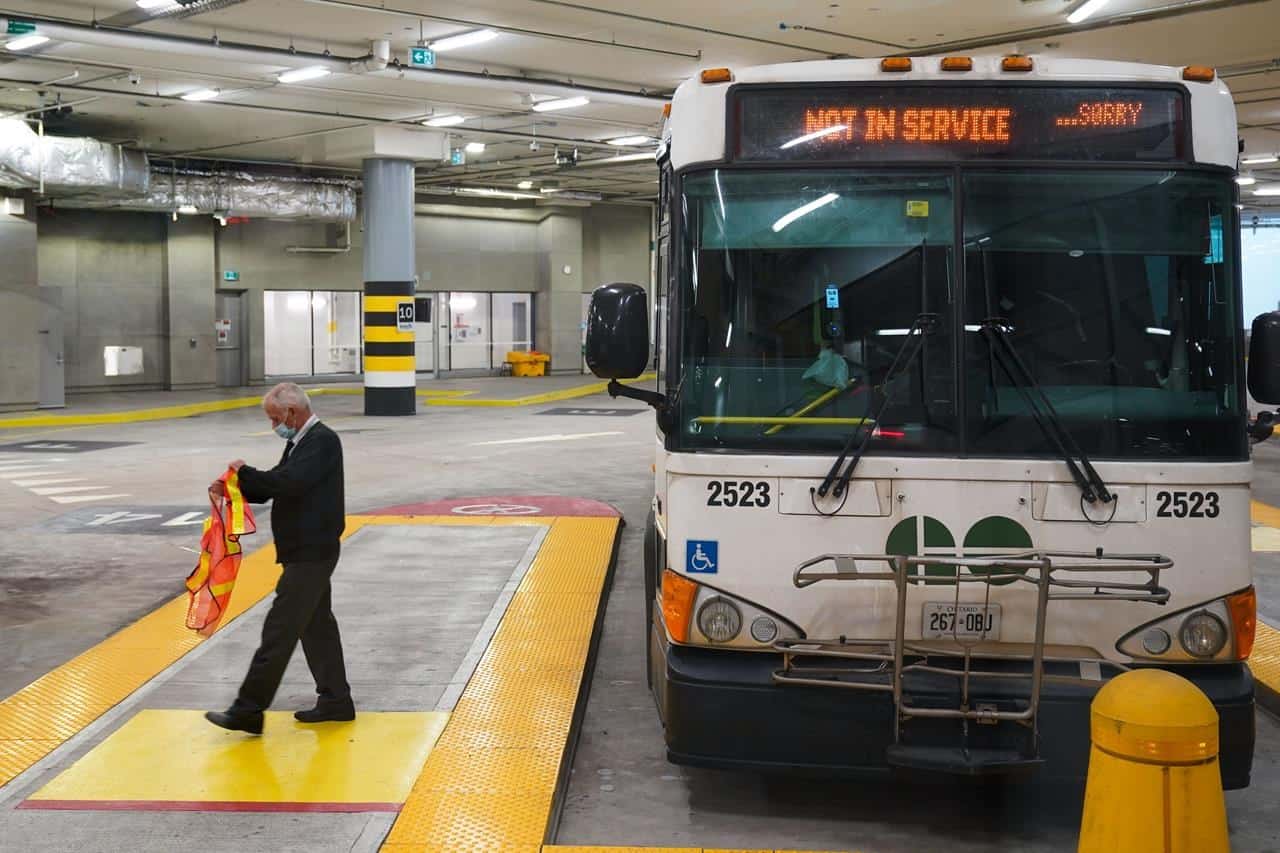GO Transit commuters very frustrated by bus route changes in Mississauga and Milton
Published May 5, 2023 at 6:31 am

Abida Suboor’s commute to campus has been tougher in the last few weeks.
The graduate student uses GO Transit to get from her home in Milton, Ont., to the University of Guelph but changes to her typical bus route have meant she’s had to shift her routine or endure a journey that takes more than double the time.
“It’s been tough, to say the least,” said the 24-year-old. “I share a vehicle with my family. That’s a reason why having … a route that I could really depend on mattered to me.”
Suboor is among the students in the Greater Toronto Area and surrounding regions who’ve been affected by changes GO Transit operator Metrolinx made to some routes last month.
Among the changes was the elimination of a direct bus route between Milton and Toronto’s Union Station, a key transit hub. Metrolinx also increased service on certain busy routes between Toronto and Kitchener, Ont., but scrapped some train services and replaced them with buses.
Suboor used to take GO Transit’s Route 21 bus – which ran between Milton and Union Station – to a stop in Mississauga, Ont., where she would transfer to a bus running to Guelph.
Metrolinx’s changes mean the bus has altered its route and no longer travels all the way from Milton to Union – eliminating Suboor’s transfer point. Commuters now have to take a bus to train stations on the Lakeshore West GO train line and then travel east to Union Station or west to other stops.
A trip that used to take Suboor 40 minutes would now take two hours, she said. Suboor now takes a different bus, Route 27, which runs less frequently, to make it to campus. It means she needs to get up earlier and stay on campus later.
“If I were wanting to be done by 2 (p.m.) in Guelph, I can’t come back home without having to inconvenience someone from my family because there’s no bus running at two for the 27,” she said.
Prem Shah, a student at George Brown College in Toronto, also relies heavily on transit and used to take the Route 21 bus to get to his part-time job in Mississauga. The recent change has made his commute to work, often after classes, much longer, he said.
“It has been mentally stressful, to be honest,” said the 29-year-old.
The GO changes also came in the middle of his semester, when he couldn’t make changes to his already tight schedule, he said.
“I may have to even consider leaving my role (at work),” he said. “If this … affects my studies, that would be a problem.”
Several other GO Transit users identifying themselves as students have complained about the transit operator’s route changes on social media.
Mississauga Mayor Bonnie Crombie reached out to Metrolinx to raise concerns about the changes to Route 21, which serves a significant number of residents and those who work in the city.
“We are already hearing complaints from residents and commuters that this change will add up to one hour travel on their commute,” she wrote in a letter to the transit operator.
“Those who commute to our city from work are considering whether or not coming into the office is worth their time and are said to be considering fully remote work instead.”
Metrolinx has said that long-anticipated efforts to refurbish Toronto’s Gardiner Expressway prompted the changes on Route 21.
When asked to respond to students’ commuting concerns, the transit operator said GO buses on Route 21 were delayed 40 minutes or more on almost half of last summer’s weekends “due to congestion.
“Upcoming construction is expected to make these delays worse, potentially increasing travel times by an hour or more for our customers,” it wrote in a statement.
“That is why we have changed GO Bus Route 21 to avoid the Gardiner, redirecting customers to the closest GO Train Station to bring them into Union Station.”
Metrolinx said the adjusted route ensures service is more “efficient and reliable.”
INsauga's Editorial Standards and Policies








